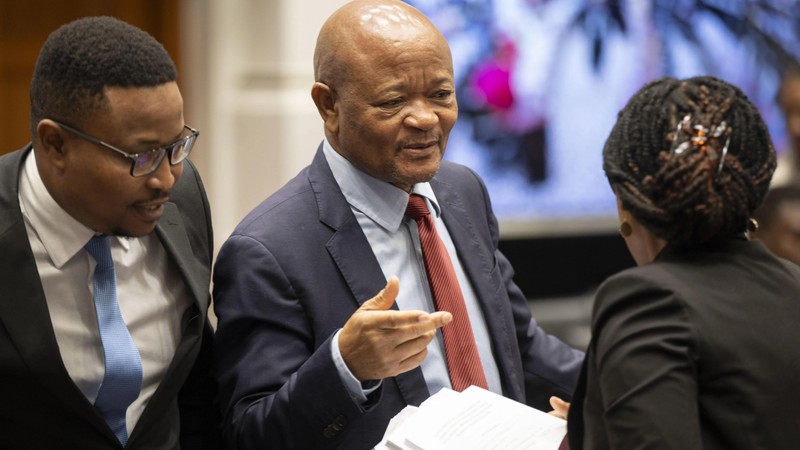
Suspended Police Minister Senzo Mchunu told the South African Police Service (SAPS) Ad Hoc Committee investigating alleged corruption and political interference that he briefed President Cyril Ramaphosa following his decision to disband the controversial Political Killings Task Team (PKTT).
During Friday’s hearing, Mchunu faced sharp questioning over his role in the disbandment, an issue that exploded into public view after KwaZulu-Natal Police Commissioner Lieutenant General Nhlanhla Mkhwanazi implicated him directly in political interference affecting police operations.
Asked by Evidence leader Advocate Norman Arendse whether he had informed the President about his move to shut down the PKTT, Mchunu confirmed he had done so.
“I sought an appointment and it was granted,” Mchunu told the committee.
“I went to present that I had made this decision in December last year. I don’t recall the exact date, but it was either January or February. I am prepared to check.”
He explained that the briefing to Ramaphosa was meant to pre-empt what he saw as mounting political tensions related to the task team.
“I told him these matters, among others, led me to disband the political task team. If I had not acted then, there might have been calls for a commission of inquiry on those matters. So I decided to pre-empt such a call.”
Mchunu also defended the decision as part of normal administrative processes, pointing out that the disbanding of the PKTT was not unique.
“I have issued similar directives before, including the disbandment of the police inspectorate.”
Earlier in the day, the committee heard from Mchunu about his fraught relationship with Mkhwanazi.
The minister revealed that he had advised his chief of staff, Cedrick Nkabinde, to record conversations with the KwaZulu-Natal police commissioner after detecting what he described as threats of retaliation over the PKTT’s disbandment.
Evidence leader Arendse pressed Mchunu on why he had refused to meet with Mkhwanazi – who had repeatedly requested a meeting to discuss urgent policing matters.
“I wanted to meet General Mkhwanazi privately, but it just did not happen,” said Mchunu.
He elaborated that an alleged WhatsApp voice recording between Nkabinde and Mkhwanazi contained threats that the commissioner would “fight back,” contributing to his wariness.
“I was of sober mind when I issued the directive to disband the task team,” Mchunu asserted.
Responding directly to questions about the letter that effectively dissolved the PKTT, Mchunu said he drafted the document on New Year’s Eve after careful consideration and takes full responsibility.
“I don’t want to leave any doubt about who wrote the letter and why. I therefore take full responsibility. I can assure you that I was sober when I wrote that letter,” he said.
Politics
